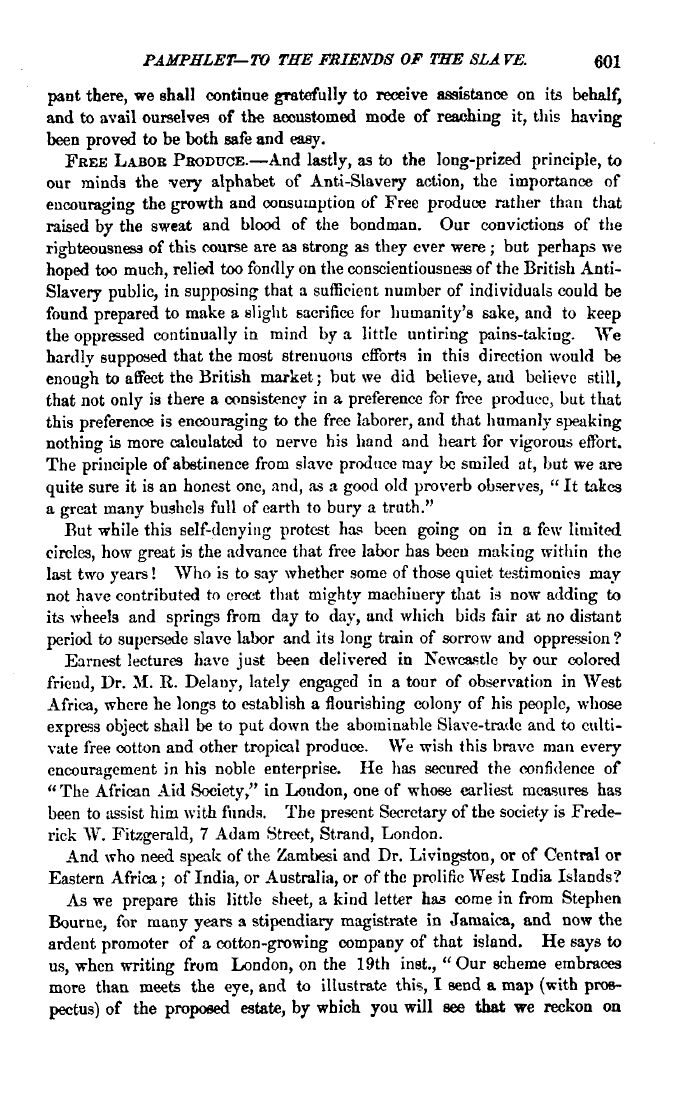 |
||||
 |
||||
| PAMPHLET—TO THE FRIENDS OF THE SLA VE. 601 pant there, we shall continue gratefully to receive assistance on its behalf, and to avail ourselves of the accustomed mode of reaching it, this having been proved to be both safe and easy. FREE LABOR PEODUCE.—And lastly, as to the long-prized principle, to our minds the very alphabet of Anti-Slavery action, the importance of encouraging the growth and consumption of Free produce rather than that raised by the sweat and blood of the bondman. Our convictions of the righteousness of this course are as strong as they ever were; but perhaps we hoped too much, relied too fondly on the conscientiousness of the British Anti-Slavery public, in supposing that a sufficient number of individuals could be found prepared to make a slight sacrifice for humanity's sake, and to keep the oppressed continually in mind by a little untiring pains-taking. We hardly supposed that the most strenuous efforts in this direction would be enough to affect the British market; but we did believe, and believe still, that not only is there a consistency in a preference for free produce, but that this preference is encouraging to the free laborer, and that humanly speaking nothing is more calculated to nerve his hand and heart for vigorous effort. The principle of abstinence from slave produce may be smiled at, but we are quite sure it is an honest one, and, as a good old proverb observes, " It takes a great many bushels full of earth to bury a truth." But while this self-denying protest has been going on in a few limited circles, how great is the advance that free labor has been making within the last two years ! Who is to say whether some of those quiet testimonies may not have contributed to erect that mighty machinery that is now adding to its wheels and springs from day to day, and which bids fair at no distant period to supersede slave labor and its long train of sorrow and oppression ? Earnest lectures have just been delivered in Newcastle by our colored friend, Dr. M. R. Delanv, lately engaged in a tour of observation in West Africa, where he longs to establish a flourishing colony of his people, whose express object shall be to put down the abominable Slave-trade and to cultivate free cotton and other tropical produce. We wish this brave man every encouragement in his noble enterprise. He has secured the confidence of "The African Aid Society," in London, one of whose earliest measures has been to assist him with funds. The present Secretary of the society is Frederick "W. Fitzgerald, 7 Adam Street, Strand, London. And who need speak of the Zambesi and Dr. Livingston, or of Central or Eastern Africa; of India, or Australia, or of the prolific West India Islands? As we prepare this little sheet, a kind letter has come in from Stephen Bourne, for many years a stipendiary magistrate in Jamaica, and now the ardent promoter of a cotton-growing company of that island. He says to us, when writing from London, on the 19th inst., "Our scheme embraces more than meets the eye, and to illustrate this, I send a map (with prospectus) of the proposed estate, by which you will see that we reckon on |